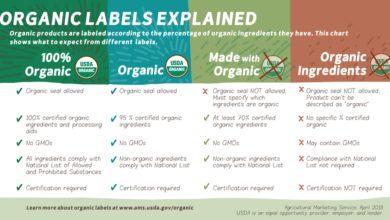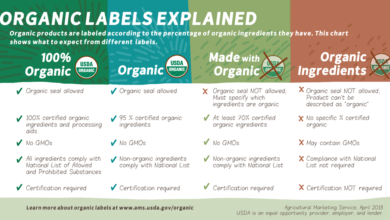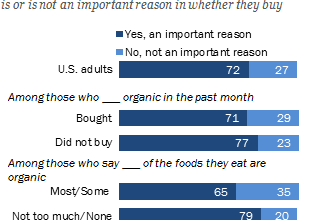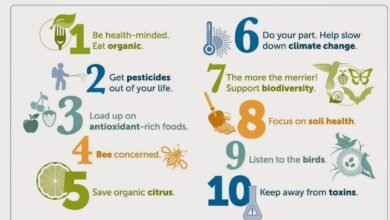
How Much Longer Will You Live If You Eat Healthy
Eating healthy can extend your life expectancy by up to 10 years. This varies based on individual health and diet quality.
A nutritious diet can profoundly impact your overall health and longevity. Consuming a balanced diet rich in fruits, vegetables, whole grains, and lean proteins supports bodily functions and reduces the risk of chronic diseases. Healthy eating habits can help maintain an ideal weight, improve mental health, and boost energy levels.

Avoiding processed foods and excessive sugar intake further enhances the benefits. Small, consistent changes in your diet can lead to significant long-term health improvements. By making informed dietary choices, you can enjoy a longer, healthier life with reduced medical complications. Prioritizing healthy eating is a proactive step toward a better quality of life.
Benefits Of A Healthy Diet
Eating a healthy diet has many benefits for your body and mind. It can help you live longer, feel better, and avoid diseases. Let’s explore how a healthy diet can improve your life.
Nutrient-rich Foods
Nutrient-rich foods provide essential vitamins and minerals. These foods include fruits, vegetables, whole grains, and lean proteins. They help your body function properly. Eating a variety of these foods ensures you get all needed nutrients.
Here are some examples of nutrient-rich foods:
- Fruits: Apples, berries, oranges
- Vegetables: Spinach, carrots, broccoli
- Whole Grains: Brown rice, quinoa, oats
- Lean Proteins: Chicken, fish, beans
These foods are low in unhealthy fats and sugars. They can help maintain a healthy weight.
Chronic Disease Prevention
A healthy diet can prevent chronic diseases. These include heart disease, diabetes, and some cancers. Foods rich in antioxidants, like berries and nuts, help fight harmful free radicals.
Here is a list of foods that can help prevent chronic diseases:
- Berries: Blueberries, strawberries, raspberries
- Nuts: Almonds, walnuts, pistachios
- Leafy Greens: Kale, spinach, Swiss chard
- Whole Grains: Barley, brown rice, quinoa
These foods can lower inflammation and boost your immune system. They also help control blood sugar levels. Eating them regularly can reduce the risk of chronic diseases.
Life Expectancy And Nutrition
Eating healthy can make you live longer. Nutrition plays a big role in life expectancy. A balanced diet can reduce the risk of diseases. This leads to a longer, healthier life. Let’s explore some studies and key findings.
Diet And Longevity Studies
Many studies show the link between diet and longevity. Researchers have found that certain foods can extend life. Fruits, vegetables, nuts, and whole grains are especially important. These foods are rich in vitamins, minerals, and antioxidants. They help the body fight diseases.
A famous study is the Blue Zones study. It looked at areas where people live the longest. The common factor was a plant-based diet. People in these areas ate lots of fruits, vegetables, and legumes. They also had very little processed food.
Key Findings
| Food | Benefit |
|---|---|
| Fruits and Vegetables | Rich in vitamins and antioxidants |
| Whole Grains | Provide fiber and essential nutrients |
| Nuts | Good fats and proteins |
| Legumes | High in protein and fiber |
Key findings show that balanced diets are crucial. These diets lower the risk of heart disease and cancer. They also help control weight and improve mental health. A healthy diet is one of the best ways to live longer.
Heart Health
Heart health plays a vital role in our overall well-being. A healthy heart ensures a longer, more active life. Eating the right foods can significantly improve heart health.
Impact Of Diet On Heart Disease
The impact of diet on heart disease cannot be overstated. Poor dietary choices can lead to blocked arteries and heart attacks. Saturated fats and trans fats are major culprits. They increase bad cholesterol levels. High cholesterol can cause heart disease.
On the other hand, a balanced diet can reduce the risk of heart disease. Consuming fruits, vegetables, and whole grains promotes heart health. These foods are rich in essential nutrients. They help maintain a healthy heart.
| Unhealthy Foods | Healthy Alternatives |
|---|---|
| Fried foods | Baked or grilled options |
| Sugary drinks | Water or herbal teas |
| Processed snacks | Nuts and seeds |
Healthy Heart Foods
Certain foods are especially beneficial for heart health. These foods provide essential nutrients that support heart function.
- Oats: Rich in fiber, oats help lower cholesterol levels.
- Salmon: High in omega-3 fatty acids, salmon reduces inflammation.
- Avocados: Full of healthy fats that improve cholesterol levels.
- Leafy Greens: Packed with vitamins and minerals that support heart health.
- Blueberries: Antioxidants in blueberries protect the heart.
Including these foods in your diet can make a big difference. They help keep your heart strong and healthy.
Brain Health
Eating healthy impacts not just your body but also your brain. A nutritious diet can improve your cognitive function and keep your brain sharp. Let’s explore how nutrition affects your brain and which foods can help.
Nutritional Impact On Cognitive Function
Your brain needs the right nutrients to function well. Vitamins, minerals, and antioxidants play key roles. These nutrients help protect brain cells and improve communication between neurons.
Omega-3 fatty acids, found in fish, are crucial. They support brain cell structure and function. Antioxidants, like vitamin E, protect cells from damage.
Low levels of these nutrients can lead to cognitive decline. Ensuring you get enough can enhance memory and thinking skills.
Foods For Brain Health
Some foods are particularly good for brain health. Here are a few:
- Fatty Fish: Rich in omega-3 fatty acids.
- Blueberries: Packed with antioxidants.
- Turmeric: Contains curcumin, which crosses the blood-brain barrier.
- Broccoli: High in antioxidants and vitamin K.
- Pumpkin Seeds: Full of magnesium, iron, zinc, and copper.
- Dark Chocolate: Contains flavonoids, caffeine, and antioxidants.
Incorporate these foods into your diet to boost your brain health. Avoid processed foods and sugar as they can harm brain function.
| Food | Benefit |
|---|---|
| Fatty Fish | Supports brain cell structure |
| Blueberries | Protects brain cells |
| Turmeric | Crosses blood-brain barrier |
| Broccoli | High in antioxidants |
| Pumpkin Seeds | Rich in magnesium |
| Dark Chocolate | Contains flavonoids |
Eating a balanced diet with these brain-boosting foods can help you stay sharp longer. Make smart food choices for a healthier brain.
Weight Management
Weight management is crucial for a long and healthy life. Maintaining a balanced weight can reduce the risk of several diseases. By eating healthy, you can manage your weight effectively.
Healthy Weight And Lifespan
Maintaining a healthy weight can extend your lifespan. Being overweight or underweight can lead to health problems.
| Weight Category | Health Risks |
|---|---|
| Underweight | Weaker immune system, malnutrition |
| Healthy Weight | Lower risk of chronic diseases |
| Overweight | Heart disease, diabetes |
| Obese | High blood pressure, stroke |
Staying within a healthy weight range improves your chances of living longer. It reduces the likelihood of diseases like diabetes and heart conditions.
Effective Dietary Choices
Making the right dietary choices helps in weight management. Here are some effective dietary tips:
- Eat More Fruits and Vegetables: They are low in calories and high in nutrients.
- Choose Whole Grains: Whole grains keep you full longer and provide fiber.
- Limit Sugary Drinks: These are high in empty calories and sugar.
- Opt for Lean Proteins: Choose chicken, fish, and plant-based proteins.
- Avoid Processed Foods: They often contain unhealthy fats and sugars.
Following these tips can help you maintain a healthy weight. A balanced diet also enhances your overall well-being.
Gut Health
Gut health plays a significant role in overall well-being. A healthy gut can improve digestion, boost the immune system, and even affect mood. Eating healthy foods can enhance gut health, leading to a longer and healthier life. Let’s explore how diet impacts digestive health and the role of probiotics and prebiotics.
Diet’s Role In Digestive Health
A balanced diet is crucial for maintaining good digestive health. Consuming a variety of nutrients helps the digestive system function effectively. Fiber-rich foods, like fruits, vegetables, and whole grains, keep the digestive tract moving smoothly. They prevent constipation and support healthy bowel movements. Foods rich in fiber also feed good bacteria in the gut, promoting a balanced microbiome.
Avoiding processed foods and excess sugar is equally important. These can disrupt the balance of gut bacteria and lead to digestive issues. A diet high in healthy fats, lean proteins, and complex carbohydrates supports a healthy digestive system.
Probiotics And Prebiotics
Probiotics are live bacteria that provide health benefits when consumed. They can be found in fermented foods like yogurt, kefir, sauerkraut, and kimchi. Probiotics help replenish good bacteria in the gut, improving digestion and immune function.
Prebiotics are non-digestible fibers that feed the good bacteria in the gut. They are found in foods like garlic, onions, bananas, and asparagus. Prebiotics support the growth and activity of beneficial gut bacteria.
Including both probiotics and prebiotics in your diet can create a healthy gut environment. This can lead to better digestion, improved immunity, and overall well-being.
| Food Type | Examples | Benefits |
|---|---|---|
| Fiber-rich Foods | Fruits, Vegetables, Whole Grains | Improves digestion, Prevents constipation |
| Probiotics | Yogurt, Kefir, Sauerkraut | Replenishes good bacteria |
| Prebiotics | Garlic, Onions, Bananas | Feeds beneficial bacteria |
Immune System Support
Eating healthy has many benefits, one of which is immune system support. A strong immune system helps fight off illnesses and infections. Let’s explore how a nutritious diet can boost your immune health.
Nutrients For Immune Health
Several nutrients play a crucial role in supporting your immune system:
- Vitamin C: Found in citrus fruits, strawberries, and bell peppers.
- Vitamin D: Available in fatty fish, eggs, and fortified dairy products.
- Zinc: Present in meat, nuts, and seeds.
- Probiotics: Found in yogurt, kefir, and fermented foods.
- Antioxidants: Available in berries, dark chocolate, and green tea.
Dietary Tips For Immunity
Incorporating the right foods into your diet can enhance your immune function. Follow these tips for a stronger immune system:
- Eat a variety of fruits and vegetables: Aim for a rainbow of colors.
- Include lean proteins: Choose chicken, fish, and plant-based proteins.
- Stay hydrated: Drink plenty of water throughout the day.
- Avoid processed foods: Opt for whole, unprocessed options.
- Get enough fiber: Eat whole grains, legumes, and seeds.
These dietary choices can boost your immune system and improve your overall health.
Practical Tips For Healthy Eating
Eating healthy can extend your life. Small changes can make a big difference. Here are some practical tips to help you start.
Meal Planning
Planning meals can save time and reduce stress. It helps you make healthier choices. Follow these steps to create a meal plan:
- Make a list of your favorite healthy foods.
- Plan your meals for the week.
- Create a shopping list based on your meal plan.
- Prep ingredients in advance to save time during the week.
Here is a simple meal plan for a day:
| Meal | Food |
|---|---|
| Breakfast | Oatmeal with fruits and nuts |
| Lunch | Grilled chicken salad with olive oil dressing |
| Dinner | Baked salmon with steamed vegetables |
| Snacks | Yogurt and fresh berries |
Mindful Eating
Mindful eating means paying attention to your food. It helps you enjoy and savor each bite. Follow these tips to eat mindfully:
- Eat slowly and chew your food well.
- Turn off the TV and put away your phone.
- Notice the colors, smells, and textures of your food.
- Stop eating when you feel full.
Mindful eating can help you enjoy your meals more. It can also prevent overeating and help with digestion.
Frequently Asked Questions
Will You Live Longer If You Eat Healthy?
Yes, eating healthy can help you live longer. A nutritious diet reduces risks of chronic diseases and boosts overall health.
Will You Live Longer If You Have Healthy?
Yes, maintaining a healthy lifestyle can increase longevity. Eating nutritious foods, exercising regularly, and avoiding harmful habits contribute to a longer life.
How Long Does A Very Healthy Person Live?
A very healthy person can live up to 90-100 years. Longevity depends on genetics, lifestyle, and environmental factors.
Do Healthy People Live Longer Than Unhealthy People?
Yes, healthy people generally live longer than unhealthy people. A balanced diet, regular exercise, and avoiding harmful habits contribute to longevity.
Conclusion
Choosing a healthy diet can significantly boost your lifespan. Consuming nutritious foods lowers disease risks and enhances overall well-being. Embrace balanced eating habits to enjoy a longer, healthier life. Remember, small daily changes lead to big health benefits. Prioritize your nutrition today for a brighter, more vibrant tomorrow.







